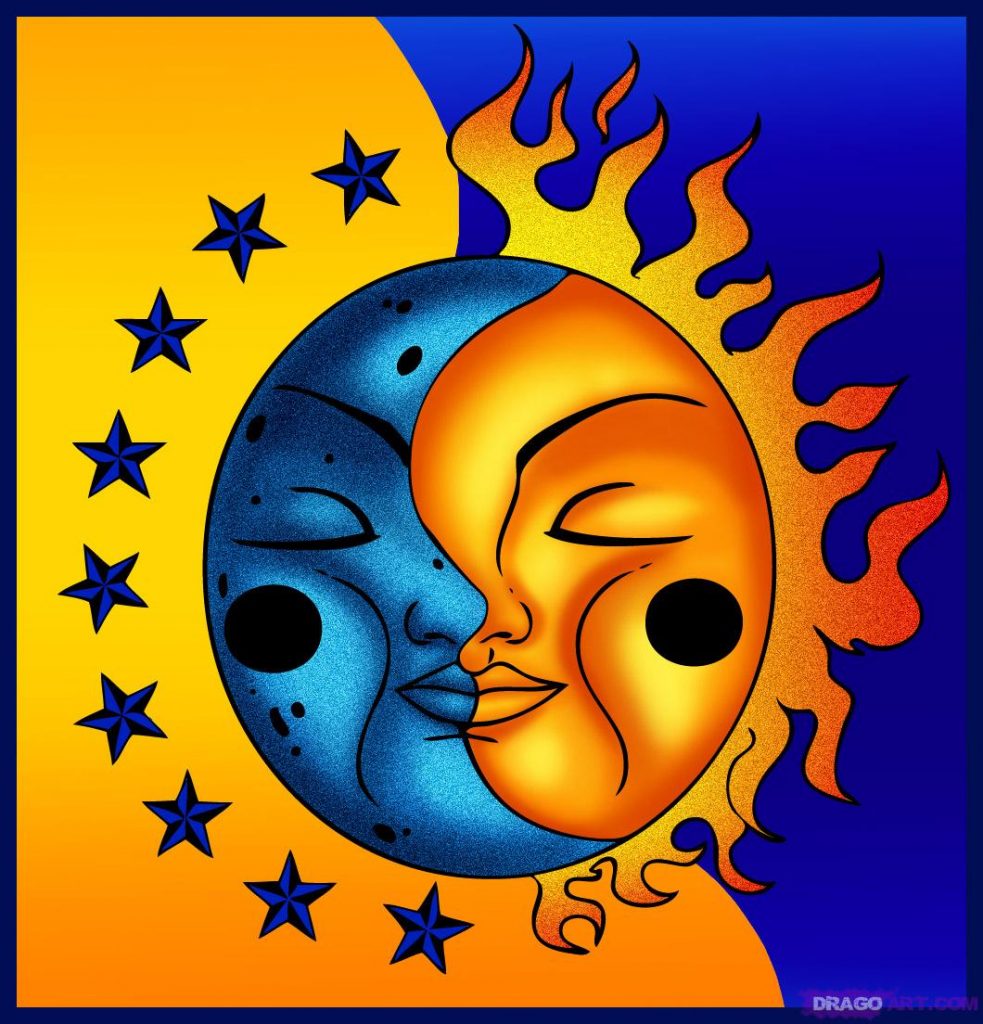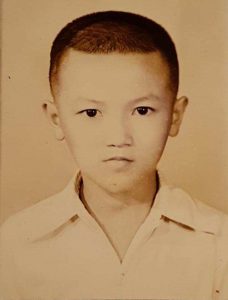The moon and The sun work as a cycle
One sets as the other one rises
How it feels to be an outcast
One walks as the other one runs
My moon is seen as an outcast
But they work as a cycle
Bigots like Donald Trump
Treat them like they’re recyclable
Here’s this little piece of paper
We make up whether or not you are
Coherent and able
Kind of like cutting off your legs just to see if you’re capable
You strip a little piece of dignity
From the small number of people who have any clarity
You pour a little price into curiosity
Slap a name on it for the people who live within the causal luminosity
They say to be one with others
But how do we coexist without having the same Mother
The moon and the son
They rotate like two linear buns
The universe spins on the same frequency
Even if we don’t speak the same currency
If you bounce the moon off it’s timeline
Is the sun sitting there waiting to see if the time’s right?
One sets as the other one rises
Its all about how they handle each other’s vices
You have one language that’s just sugar and spices
And one language that’s all high rises
That’s how it feels to be an outcast
“All things in this world die”
According to someone who claims that they don’t hide
Shifting paths, living in masks
Do you walk or do you run?
Are you the moon or are you the sun?
Artist Rendition:

My narrative poem addressed some things from my point of view which is looking into a window through L’s point of view. The first stanza starts off with the moon and sun comparison. This is a big theme that ties the entire piece together. I talked about how one (the moon/sun) sets while the other one rises. The moon and sun are constantly on their own wavelength, rotation, time, and speed. They’re working together as a team but they’re also their own individual energy source. To try and make more sense of this we must give a little background on the person in interest. During my interview with L, they gave me insight into some of the struggles they had to deal with on the daily due to the lack of documentation their parents have. They are considered “aliens” according to the government and the laws held within this country. The moon and sun comparison has multiple ties into it but the main one is that the moon represents the minorities while the sun represents the government and/or upper class. Undocumented people are “outcasts.” In the interview, L states that “there [were] actually a couple situations where [their] parent [was] uhm— they weren’t embarrassed but they, they were treated less than a human”(1:51). My last line in my first stanza states “one walks as the other one runs” in correlation to the idea of the moon and sun being two different kinds of people. Imagine yourself in a situation like the rabbit and the tortoise. Who runs and who walks? That is kind of the concept I am trying to portray. Do you eat or do you stave?
In the second stanza, you can see the input of my personal opinion. I start off talking about the moon being an outcast and then I continue with the “cycle” aspect of the theme. In a sense, the government and everybody else has to work In a cycle in order to coexist and function in the same society. “Bigots like Donald Trump, treat them like they’re recyclable.” I assumed my audience has a slight comprehension of what is going on concerning our current president and the status of his demands for this country. The laws and newly founded apprehensions regarding undocumented people have really stunted the thought process for the hope of all humanity. They are being treated like they are “recyclable.” In stanza three, I talk about the “piece of paper” and how “we make up whether or not you are coherent and able.” The piece of paper is the document (s) that L’s parents do not have, the tangible and physical recycled broken-down piece of wood that determines their entire status and quality of life in this country. I compare this to “cutting off your legs, just to see if you’re capable” in kind of a sarcastic but ironic kind of light. In the interview, L talks about his parent’s most recent struggle. Their mom had just recently gotten into a car accident, trying to get the car fixed and the insurance companies to comply with the financial struggles of having to hire a lawyer. All of that can be taxing but even more taxing on someone who is illegally living in this country. Simple things are harder to obtain. The sun is the center of the universe, it has multiple energy forms relying on its energy and resources in order to function. It’s just like modern day society, the government is in control of everything, the center of attention, meanwhile, the moon, (the minorities, the outcasts, the “aliens”) is in the back pulling most of the weight getting little to no credit and is usually ridiculed along the way. The people of the moon live humbly for things that don’t come easy to them.
In the next stanza, I focus even deeper on the topic by talking about the restricting “Freedom” Americans claims we have a right to—”you strip a little piece of dignity” (taking away simple rights based off status of citizenship) “for the people who have clarity” (clarity in the sense of having a different sense of mind due to the difference in struggles and experiences people with documents versus people who don’t have documents have to go through (each person’s definition of “clarity” may or may not differ). “Slap a name on it for people who live within the casual luminosity” (to bring attention to how we, as a society, tend to label people or put them into certain boxes. People who are just waking up every day in the journey of finding a purpose to carry out until they die. Casual luminosity. Casual everyday living auras. Living light. In the interview, L states that they like to “go out with [their] cousins, a lot,” and “that’s one of the most enjoyable things [they] do” (11:55). I invert this into stanza five, line two by comparing L’s joy in hanging out with his cousins to a much deeper and more rooted problem. How does society and humanity coexist as one without having the same “Mother.” Mother in the sense of “all things greater than me.” How do people overcome fear, hatred, and differences if we won’t all first identify as being all the same? All equal? All following and breathing for the same purpose of enjoying and fulfilling our lives until we eventually die?
In stanza six, I state that the “universe spins on the same frequency, even if we don’t speak the same currency.” In saying this, I try to illustrate a picture, a visual so my audience can depict the kind of angle I am trying to portray. In the interview with L, they state that they had struggled with reading for a long time, even in kindergarten they would still struggle more than their peers. In my poem, I compare language to currency, that even though there are a lot of people who speak many different languages, it does not suggest that we are any better than the next. It is simply a currency we have; we get to use it whenever and however we want all the while reaping the benefits of being able to communicate with one another. If we strip away someone’s right to speech or degrade someone for not being fluent in one language or the other, we deny someone’s right to currency, we deny them a rite of passage. Stanza seven hits L’s struggles with stereotypes placed upon them and their family. In the interview they state that people have “tried to get my dad into selling drugs and all of that but he always said no and now I have one uncle that is here and the rest— some are incarcerated, some are in other states and some are in Mexico because of deportation” (1:51). I use this to incorporate “it’s all about how they handle each other’s vices, you have one language that’s just sugar and spices and one language that’s all high rises” by using their story and struggle with problems with their family member’s and drugs and compare it to the way that society has to share each other’s experiences and “vices” in order come to a point of total unanimous acceptance.

In the second to last stanza, I incorporated a direct quote from L themselves, “All things in this world die.” In the interview, I ask L if there is a specific or special quote he relates too and that is the first part of the quote. I find this to be the main anchor to this entire narrative poem. We all live, we all breathe, and we all die. The reason for any kind of discrimination of someone else due to their ethnic, sexual, or religious belief is pointless. If we all breathe, we all die. If we all die, what makes one person better than the next? L had a different childhood because of the struggles and battles their parents had to deal with. Although a burden at times, L takes all of this in a very warm-hearted light, they take these struggles and turn them into lessons. I state at the very end; “Do you walk, or do you run? Are you the moon or are you the sun?” Ultimately, no matter what you decide to be, you must remember that the moon is merely a reflection of the sun. We all walk and we all eventually run. It’s simply a cycle, and that cycle is called life.

